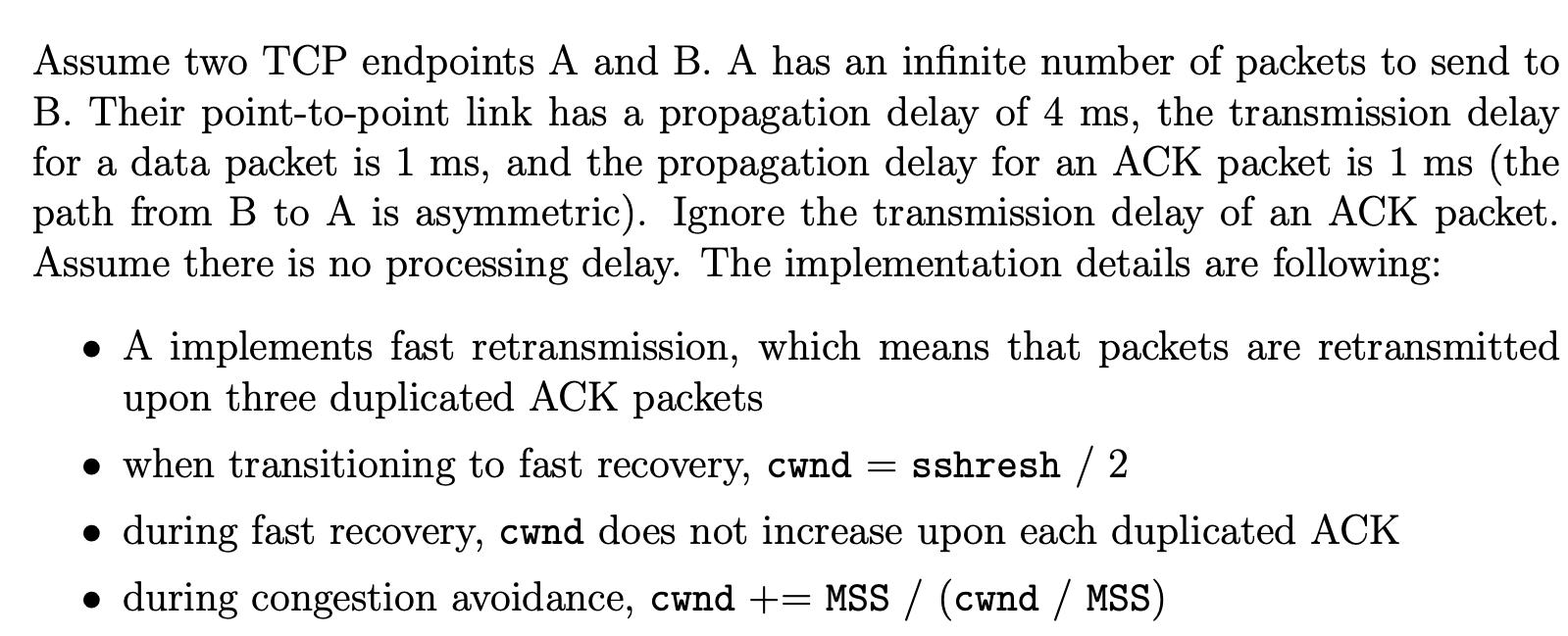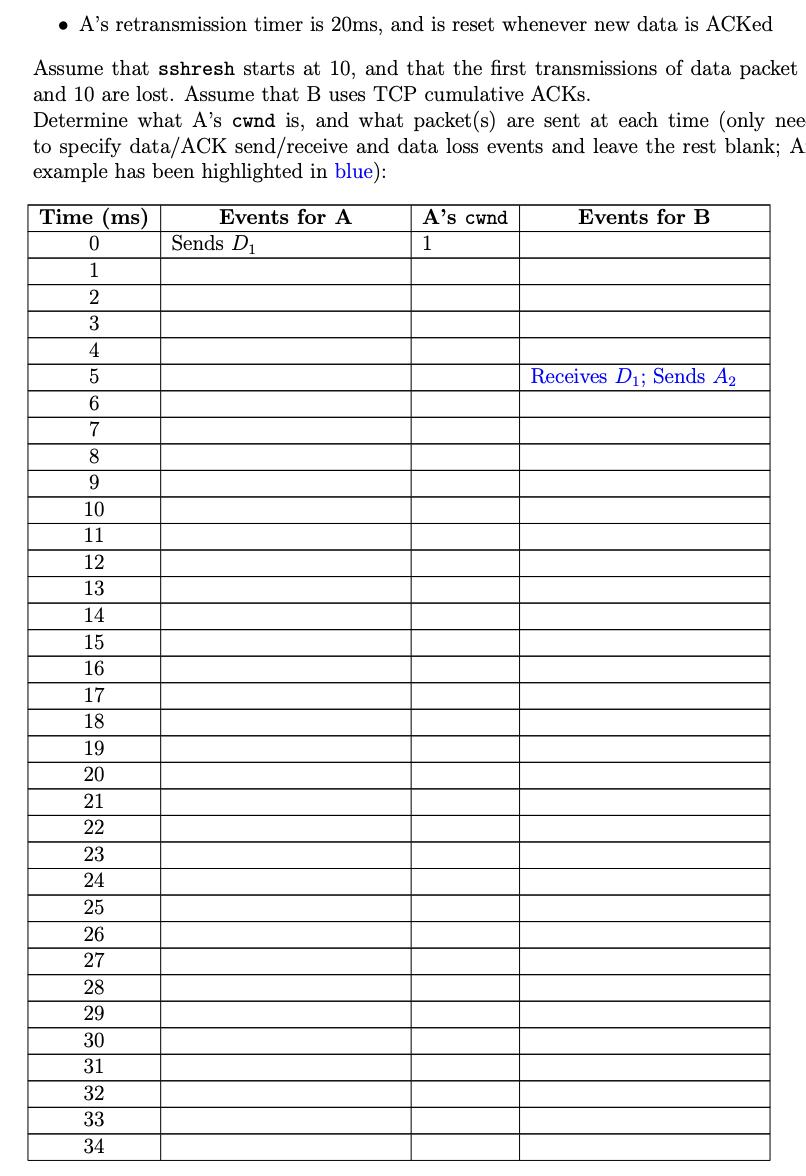Answered step by step
Verified Expert Solution
Question
1 Approved Answer
Assume two TCP endpoints A and B. A has an infinite number of packets to send to B. Their point-to-point link has a propagation


Assume two TCP endpoints A and B. A has an infinite number of packets to send to B. Their point-to-point link has a propagation delay of 4 ms, the transmission delay for a data packet is 1 ms, and the propagation delay for an ACK packet is 1 ms (the path from B to A is asymmetric). Ignore the transmission delay of an ACK packet. Assume there is no processing delay. The implementation details are following: A implements fast retransmission, which means that packets are retransmitted upon three duplicated ACK packets. when transitioning to fast recovery, cwnd = sshresh / 2 during fast recovery, cwnd does not increase upon each duplicated ACK during congestion avoidance, cwnd += MSS / (cwnd / MSS) A's retransmission timer is 20ms, and is reset whenever new data is ACKed Assume that sshresh starts at 10, and that the first transmissions of data packet and 10 are lost. Assume that B uses TCP cumulative ACKS. Determine what A's cwnd is, and what packet(s) are sent at each time (only nee to specify data/ACK send/receive and data loss events and leave the rest blank; A example has been highlighted in blue): Time (ms) 0 Events for A A's cwnd Events for B Sends D 1 1 2 3 4 5 6 7 8 9 10 11 12 13 14 15 16 17 18 19 20 21 22 23 24 25 26 27 28 29 30 31 32 33 34 Receives D; Sends A2
Step by Step Solution
There are 3 Steps involved in it
Step: 1

Get Instant Access to Expert-Tailored Solutions
See step-by-step solutions with expert insights and AI powered tools for academic success
Step: 2

Step: 3

Ace Your Homework with AI
Get the answers you need in no time with our AI-driven, step-by-step assistance
Get Started


